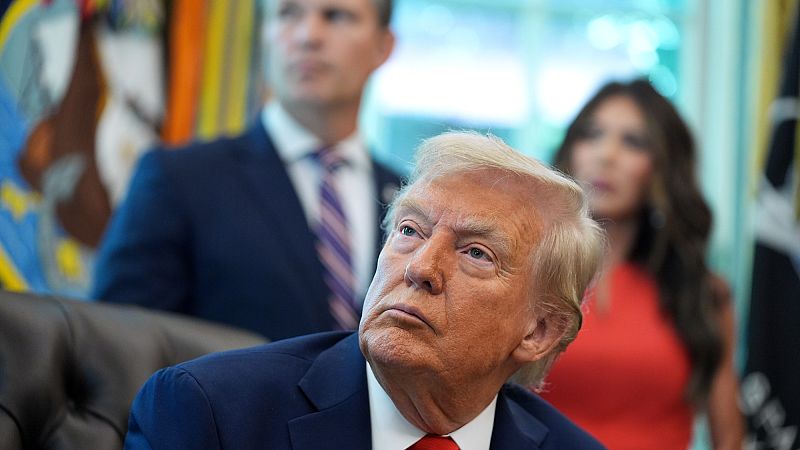Trump threatens tariffs on nations imposing digital taxes on US tech

US President Donald Trump has threatened further tariffs and export restrictions on countries he claims are unfairly targeting US tech firms.
“Digital Taxes, Digital Services Legislation, and Digital Markets Regulations are all designed to harm, or discriminate against, American technology,” Trump wrote on his social media platform, Truth Social.
He claimed that “substantial” tariffs would follow if nations didn’t “show respect” to US tech firms, adding that the taxes “give a complete pass to China’s largest tech companies”.
President Trump didn’t target any countries by name, although his comments could be read as a criticism of the EU’s Digital Markets Act (DMA) and the Digital Services Act (DSA).
The DMA seeks to ensure fair competition by preventing large digital platforms from monopolising the market. The EU has identified Alphabet, Amazon, Apple, ByteDance, Meta, and Microsoft, as so-called “gatekeepers”, meaning firms with an entrenched market position. The DSA, on the other hand, aims to prevent illegal and harmful activities online and the spread of disinformation.
The UK also has a digital services tax, along with several EU member states such as France, Italy and Spain.
Destabilising fragile agreements
Trump’s stance threatens to unravel progress made with European partners on reducing trade friction.
Last week, the EU and the US made progress on their trade pact, originally announced on 27 July, claiming that they would address unjustified barriers to transatlantic business. The agreement paves the way for lowering tariffs on specific goods and sectors.
Even so, the 27-member bloc expressed a reluctance to make any concessions on digital regulations.
“We have made it very clear to the US that changes to our digital regulations – the Digital Markets Act and the Digital Services Act – were not on the table,” said the European Commission in a statement.
The UK also considered cutting its 2% digital services tax during recent negotiations with the US, but it was able to secure a trade deal without doing so.
Canada, on the other hand, ditched its digital tax in June, shortly before it was due to go into effect. The U-turn aimed to placate Trump and secure a more advantageous trade deal, notably after the US president branded the tax as a “direct and blatant” attack.
Trump’s recent post is not the first time he has threatened tariffs on countries that have imposed a digital services tax.
In February, the president ordered the US trade representative to look into reopening investigations into these taxes, probes started during his first term.
Trump’s threat to impose “export restrictions on our highly protected technology and chips” is also likely to provoke concern at semiconductor firms.
Earlier this year, Nvidia and AMD agreed to give the US government 15% of the revenues from chip sales in China in exchange for export licenses.
Today

